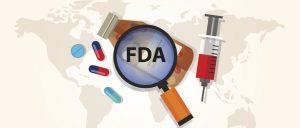
Recent studies have shown that several Neutrogena sunscreens may contain low levels of benzene. A human carcinogen, benzene has the potential to cause cancer depending on the level of exposure. Due to several recent recalls, consumers using certain Neutrogena aerosol spray and lotion sunscreens should consider discontinuing their use immediately.
Additionally, sunscreens like Neutrogena that include octocrylene may also contain benzophenone, which is also a possible carcinogen and is believed to disrupt estrogen levels in women.
What Is Benzene?
Benzene is a naturally occurring chemical that is also used in the production of plastics, resins and other synthetic fibers and rubbers. You can also find it in products like cigarettes, gasoline and in other industrial emissions. While a limited level of exposure to this chemical is not considered dangerous, recent studies have linked prolonged exposure to certain cancers such as leukemia.
For a free legal consultation with a Neutrogena Sunscreen lawyer serving Gulfport, call 800-537-8185
The Impact of Neutrogena Sunscreens
Neutrogena Sunscreens containing traces of benzene come in direct contact with the skin of unsuspecting customers. According to scientific studies, prolonged exposure can be linked to leukemia and other cancers. Because benzene is not an ingredient intentionally included in Neutrogena products, Johnson & Johnson is investigating the potential source of this contamination and any additional future impacts it may cause.
Neutrogena Sunscreens and Cancer
When exposed in higher doses, benzene causes cells to work improperly. This may result in a lower production of white blood cells, which impacts the functioning of the immune system. Long-term exposure to some Neutrogena sunscreens may result in the following symptoms:
- Anemia due to damaged bone marrow and a decrease in red blood cells
- Compromised immune system
- Leukemia and other cancers
Leukemia is a cancer that compromises blood-forming tissues like bone marrow, which is responsible for the production of red and white blood cells. When white blood cell production decreases, the body’s immune system is compromised. This often results in symptoms such as:
- Continuous fatigue and muscle weakness
- Frequent and life-threatening infections
- Easy bleeding and/or bruising
According to the International Agency for Research on Cancer, exposure to Neutrogena sunscreen products has been linked to the following cancers:
- Acute Myeloid Leukemia
- Acute Lymphocytic Leukemia
- Chronic Lymphocytic Leukemia
- Multiple Myeloma
- Non-Hodgkin’s Lymphoma
Click to contact our Gulfport Defective Products Attorney today
Has Johnson & Johnson Issued a Recall on Neutrogena Sunscreens?
Due to the potential risk for cancer, Johnson & Johnson has recalled many Neutrogena sunscreen products. Researchers are recommending consumers immediately dispose of these Neutrogena products. It is expected that many other brands will recall sunscreens containing certain levels of benzene as well.
If you believe your cancer was caused by benzene in Neutrogena sunscreen, you may want to speak to a Gulfport benzene exposure lawyer to learn more about possible compensation.
Which Neutrogena Sunscreens Have Been Contaminated with Benzene?
According to recent studies, at least four different Neutrogena sunscreen products contained benzene levels 2ppm or higher. These products include:
- Neutrogena Beach Defense
- Neutrogena Cool Dry Sport
- Neutrogena Invisible Daily
- Neutrogena Ultra Sheer
According to Valisure, over 50 different sunscreens were tested and showed benzene levels of 1ppm or higher.
Have You Used a Neutrogena Sunscreen Product Containing Traces of Benzene?
If you have purchased or used Neutrogena sunscreen products contaminated with benzene, it is recommended that you discontinue your use immediately and discard these products. Speak to a medical professional immediately if symptoms from exposure occur.
If you have been impacted by benzene exposure from Neutrogena sunscreen products, a Gulfport Morris Bart attorney may be able to help you seek compensation. During a complimentary consultation, an attorney can help answer any questions you may have and recommend next steps based on your case. As a contingency fee firm, we do not collect payment unless a settlement is reached in your case. To speak with a Morris Bart attorney for free today, call (228) 357-9621.
Questions?Call 800-537-8185
to find a Morris Bart office near you.





